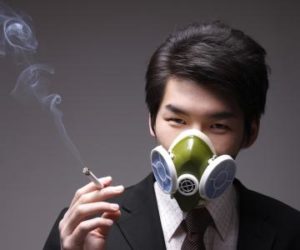We think of elimination taking place through the bladder and bowels, through urination and defecation. However, your main organs of detoxification are your kidneys and liver.
Keeping Your Body Detoxified
These hard-working organs handle removing toxins that are consumed by breathing (air pollution) or ingested with foods or drinking water. Obviously, the quality of the air you breathe or the food you choose will impact the detoxification load your body has to handle. Then there’s basic maintenance. Your body replaces cells that are worn out or damaged, and the old worn-out cells have to be broken down and eliminated.
Taking Out The Garbage
Almost every cell in your body is replaced (sometimes more than once) in a seven-year period. That means that dozens of pounds of dead cells are disposed of every year.
The waste products created by breathing, eating and maintaining your body are toxic, and if they were allowed to remain in your body, they would poison you. However, we have a well-designed waste removal system that flushes toxins constantly.
 Your Choices Impact Your Toxin Level
Your Choices Impact Your Toxin Level
Your liver and kidneys filter toxins out of your body and flush them. Sometimes, when your lifestyle choices are particularly poor (smoking, fast food, etc), they become overwhelmed, and other organs have to step up to assist with elimination.
Secondary Organs Of Elimination
These secondary organs of elimination include the large intestine, bladder, lungs and skin. When they are called into play to eliminate a toxic overload, they do their best, but they are often irritated, inflamed or damaged in the process, which can result in illness. You may see the results as skin blemishes from poor diet, or a “smoker’s cough” as your lungs try to cope with poisons.
What If Your Body Can’t Handle The Toxic Load
In extreme cases of your body being unable to handle the cumulative load of poisons you are exposed to, they can kill you. However, being mindful of an increased level of toxemia allows us to make changes before its too late. Constant production of mucus, chronic cough or unpleasant skin odors can be indicators that your body is under toxic stress.
When your body can’t eliminate all toxins, or is impaired in removing them due to nutritional deficiencies or a genetic condition such as MTHFR, it stores the dangerous substances for (hopefully) later removal when conditions are better. These toxins may be stored in joints, muscles, or fat tissue. Sometimes the body creates cysts or growths (which may be come cancerous) to store toxins it cannot eliminate.
What Can Be Done To Improve Detoxification?
Obviously, keeping your body fighting with an overload of toxins for too long can result in inflammation causing autoimmune disease, or even cancer. We want to intervene before these issues occur by making healthy lifestyle changes, and providing the body with nutritional supplementation that supports toxin release and elimination. In our integrative health practice, we can offer you a personalized program for achieving better health. We also have genetic testing available that can tell you whether you have particular challenges in dealing with detoxification. This is helpful knowledge when living in a large city such as Hong Kong, as there are steps you can take to protect yourself.

